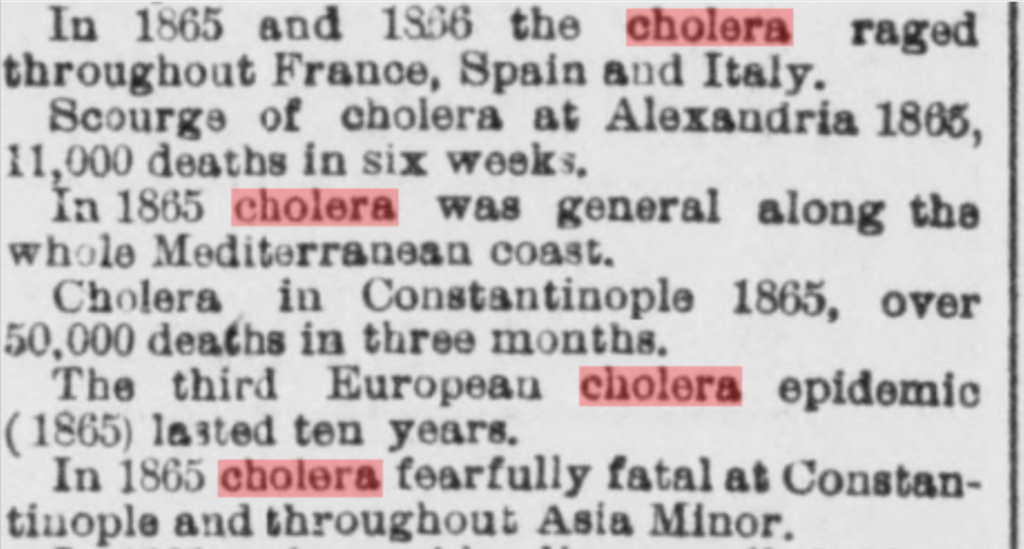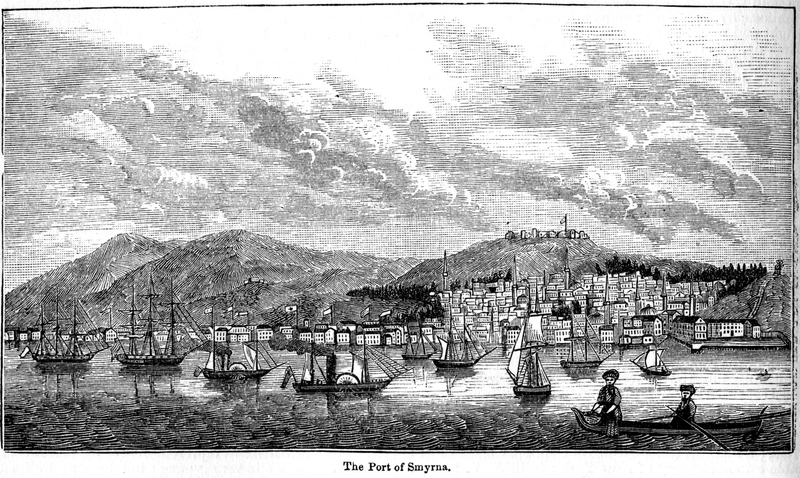Contest Summary | Week 1 | Week 2 | Week 3 | Week 4
Epidemics: A New Old History
Week 4 – May 10, 2021
By Hannah Jolibois

In the time that Joseph Svoboda worked for the Lynch Company, Basra and Baghdad played a key role in connecting east to west– in particular, connecting Basra to India and with it connecting the Ottoman and British Empires. Alongside transporting trade goods and passengers, the route also allowed for the transmission of pathogens, Cholera being one such disease. Originally Cholera was a pathogen endemic to India, but as global trade routes expanded and steam allowed for travel by sea and rail, the disease spread down from the Persian Gulf across the Ottoman Empire and into Europe. While epidemic outbreaks of the new disease spread around the world, the Ottoman Empire was hit particularly hard throughout the 19th century. Nonetheless, the Ottoman Empire was no stranger to disease; prior to the emergence of cholera it suffered from outbreaks of plague, such as the black plague. In Joseph’s diaries, he reports on both cholera deaths and plague deaths in Basra and the surrounding regions. He writes about other infectious diseases as well, such as influenza, smallpox, typhoid fever, and even the typical cold, but references to cholera, plagues, and quarantines dominate his descriptions of disease and day to day reporting throughout his diaries.

Part of the Ottoman Empire’s public health strategy to deal with these diseases was the development and enforcement of quarantines. Joseph often wrote about the quarantining of towns and ships as they sailed between regions, as well as death tolls from various diseases. Typically, a 10 day quarantine was used on passengers and cargo that were carried aboard the steamships. In addition to quarantines, Joseph also writes about how mail underwent fumigation at quarantine stations.
e
The below passages are just ded starting places, read as many/few passages as sate your curiosity! Other passages that are not listed may include references to diseases or illnesses; please feel free to write or respond to these sections of the diaries as well.
Read any of the following passages:
The following questions were answered by users for this week. To view a summary of their answers, click here.
- How did infectious disease impact life along the Tigris and Euphrates? How did it impact Joseph and his associates in their work environment specifically?
- How did you relate to or empathize with Joseph? What are some differences and similarities you saw between how Joseph reports living alongside disease and your experiences in the last year?